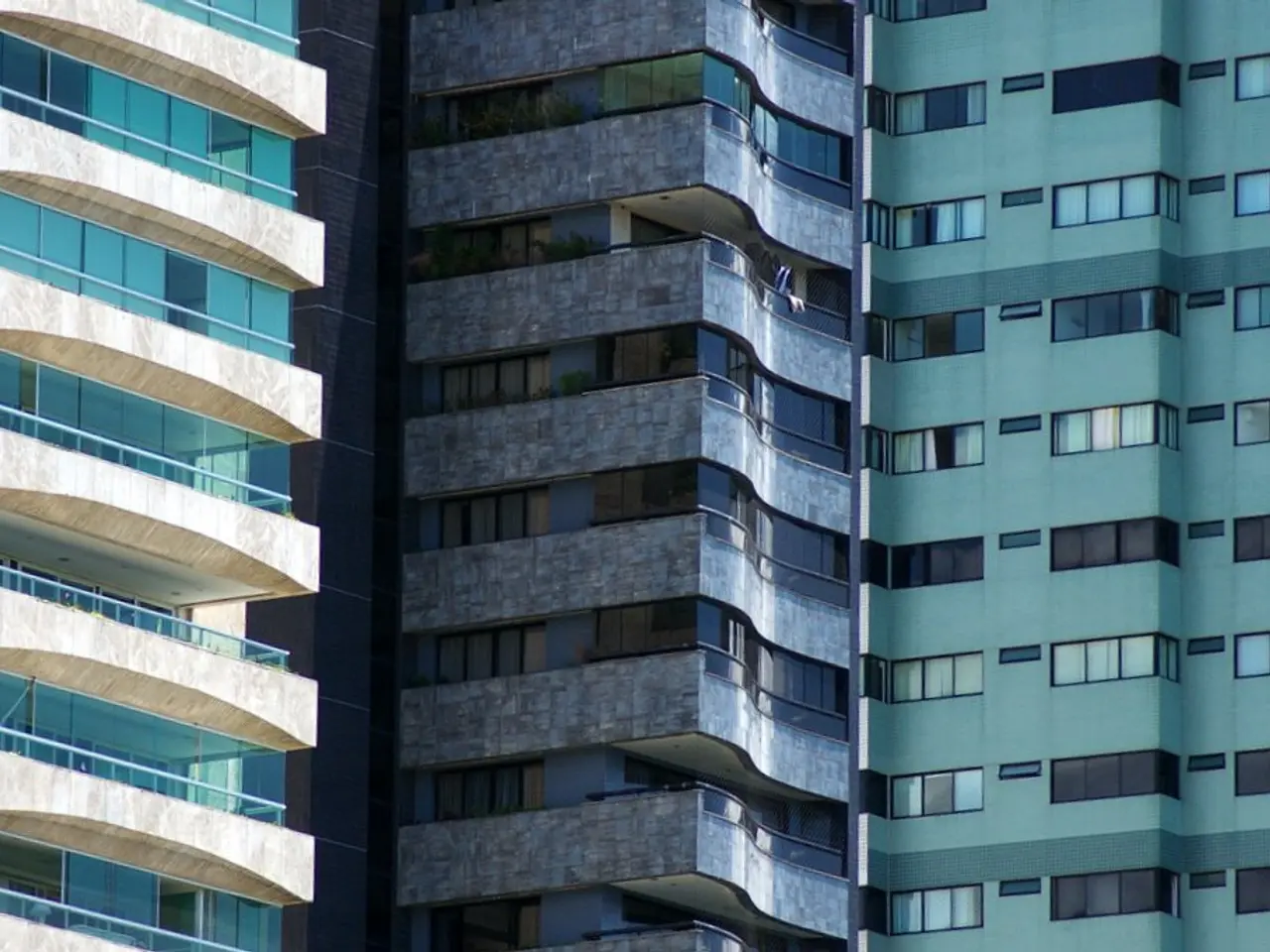House price increase rate cuts in half to 3.5% as reported by ONS.
UK's annual house price growth has taken a breather, with prices escalating by only 3.5% in the 12 months leading up to April, as per the Office for National Statistics (ONS). This marks the first slowdown in UK annual house price inflation since December 2023.
This dip in growth follows a 7% surge in house prices in the 12 months to March 2025. The average home price currently hovers around £265,000.
The slowdown is attributed to a price slide between March 2025 and April 2025, an event that coincided with stamp duty changes. The ONS data, considered the most exhaustive among house price indices, comprises all cash and mortgaged transactions albeit with a delay of up to two months due to the time it takes to process conveyancers' submissions to the Land Registry after a sale is finalized.
Halifax reported that property prices dropped by 0.4% in May, causing the annual growth rate to plunge to 2.5%. In contrast, Nationwide indicates a slight price uptick, with a 3.5% increase in the 12 months to May, up from 3.4% a month prior.
Tom Bill, head of UK residential research at Knight Frank, asserts that the UK housing market is still in the recovery phase post the April stamp duty cliff edge, but price hikes are kept in check by an oversupply of properties.
Sarah Coles, head of personal finance at Hargreaves Lansdown, recognizes the deceleration in the speed of annual price rises, but emphasizes that it might not merit concern for sellers since it was always anticipated in the aftermath of the stamp duty holiday.
Looking ahead, the trajectory of house prices this year will depend on several elements such as mortgage rates, the economy, and potential tax hikes. If the Bank of England holds its next interest rate decision tomorrow at 4.25%, as expected, relatively low mortgage rates compared to recent years should help sustain house prices in the coming months.
However, some buyers may be holding off in anticipation of lower rates. Darrell Walker, group sales director at Chetwood Bank, suggests that buyers may be adopting a conservative approach amidst persistent inflation and global uncertainty, leading them to delay their home-buying decisions.
The outlook for the property market remains cautiously optimistic, with minimal price growth predicted for the rest of the year. Increased supply, economic pressures, and uncertainty about potential tax rises are some factors contributing to this forecast. However, if interest rates continue to ease and demand remains steady, the market could see a slight uptick in prices in the coming months.
- In the real-estate sector, a cautiously optimistic outlook for the rest of the year is predicted due to increased supply, economic pressures, and uncertainty about potential tax rises, but minimal price growth is expected.
- The slowdown in UK annual house price inflation, which marks the first since December 2023, follows a 7% surge in house prices in the 12 months to March 2025, and the average home price currently hovers around £265,000.
- For personal-finance management and investing in the housing-market, it is essential to consider factors such as mortgage rates, the economy, and potential tax hikes when evaluating the trajectory of house prices in the coming months.







